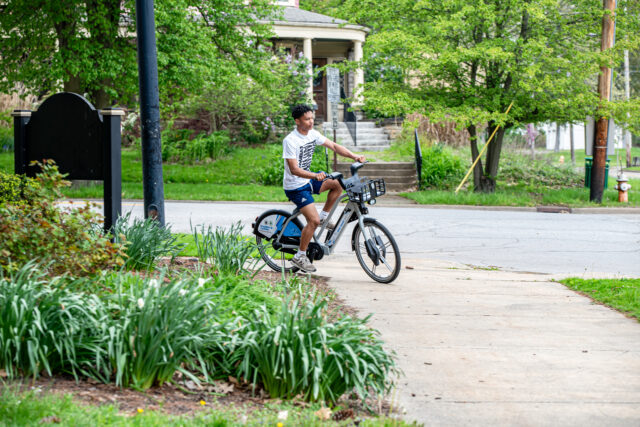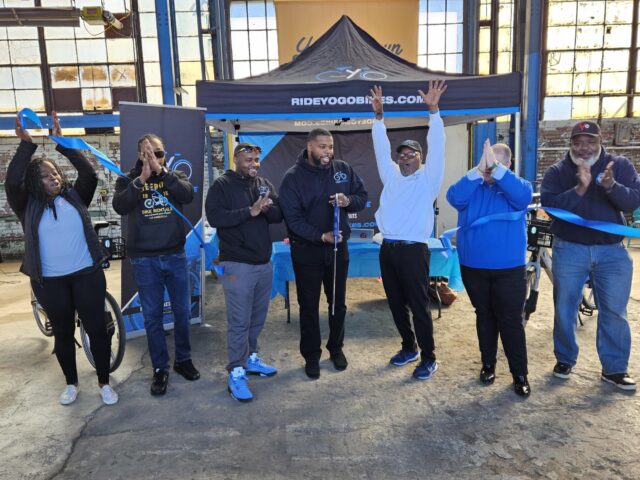Black-Owned Family Business Brings Bike Share to Youngstown, OH
by Odochi Akwani, Writer and Content Manager
May 20, 2024
YoGo Bikeshare took to the streets last month with hopes to spread micromobility to smaller communities.

Youngstown, Ohio, is a mid-sized city situated between Cleveland and Pittsburgh. While bike share systems are typically found in larger cities due to the larger populations, Ronnell Elkins and his family found themselves with extra time on their hands during the COVID-19 pandemic and began dreaming up what bike share could look like for their Midwestern community.
Elkins saw shared micromobility as a natural fit into the projects the City of Youngstown was already working on to create an efficient, multimodal transportation system through its SMART2 Network. Through the network, the city aims to “incorporate improved pedestrian and bicycle facilities, autonomous transit shuttles, transit waiting environments, green infrastructure, streetscaping, and wayfinding connecting major regional destinations.”
“I thought that having a bike share program would be able to coincide and coexist with all the others in the SMART2 program and everything that we were looking to do to revitalize our downtown and campus area,” says Elkins.
Elkins looked to his friends at POGOH, Pittsburgh’s bike share system, and MoGo, Detroit’s bike share system, for ideas and guidance. He and his team also physically tested out other systems to use as a model for their own.
“I had the opportunity to ride bikes out at Capital Bikeshare in D.C. and just thought, ‘man, this will be cool to have back at home in Youngstown,’” says Elkins.
After five years of planning, the system came to life on April 15 during a ribbon cutting celebration welcoming YoGo Bikeshare to Youngstown with Elkins as the program’s president.

Photo courtesy of YoGo Bikeshare
YoGo Bikeshare currently has 30 electric bicycles (e-bikes) with three docking stations downtown. Elkins says there are already plans to expand with more stations both in and around downtown. Anybody 14 years of age or older can enjoy YoGo, creating an accessible mobility option for youth who do not drive. Riders can borrow a bike from 7 a.m. to 10 p.m. by purchasing a “casual ride” for $4, a daily pass for $7.50, or an annual pass for $90 during YoGo’s March-December season.
While there are no discounts in place for low-income riders yet, YoGo hopes to introduce equity programs in the future.
“Youngstown lives below the federal poverty line as a city, so it’s going to be important to incorporate equitable solutions for our people because we’re also a food desert,” says Elkins. “For people to be able to get around and use their bikes to get groceries, go to doctor’s visits, and do different things like that, we want to make sure we provide this mode of transportation within the city. Those are things we will be working on, and working towards, introducing.”
The YoGo team has worked to engage residents in taking advantage of the new transportation system by partnering with established community advocacy organizations like its local Boys and Girls Club. Through hosting youth rides, YoGo speaks directly to young people about the benefits of bike share.
But it doesn’t end in Youngstown. Elkins and his family hope to use YoGo as a model to expand bike share to nearby rural areas without public transit systems, especially in college communities within an hour of Youngstown.
“We want to make sure that we do our part and get out into the community and introduce people to what bike share is and its capabilities,” Elkins says. We think and believe people will start riding the bikes and utilize them as a mode of transportation.”
